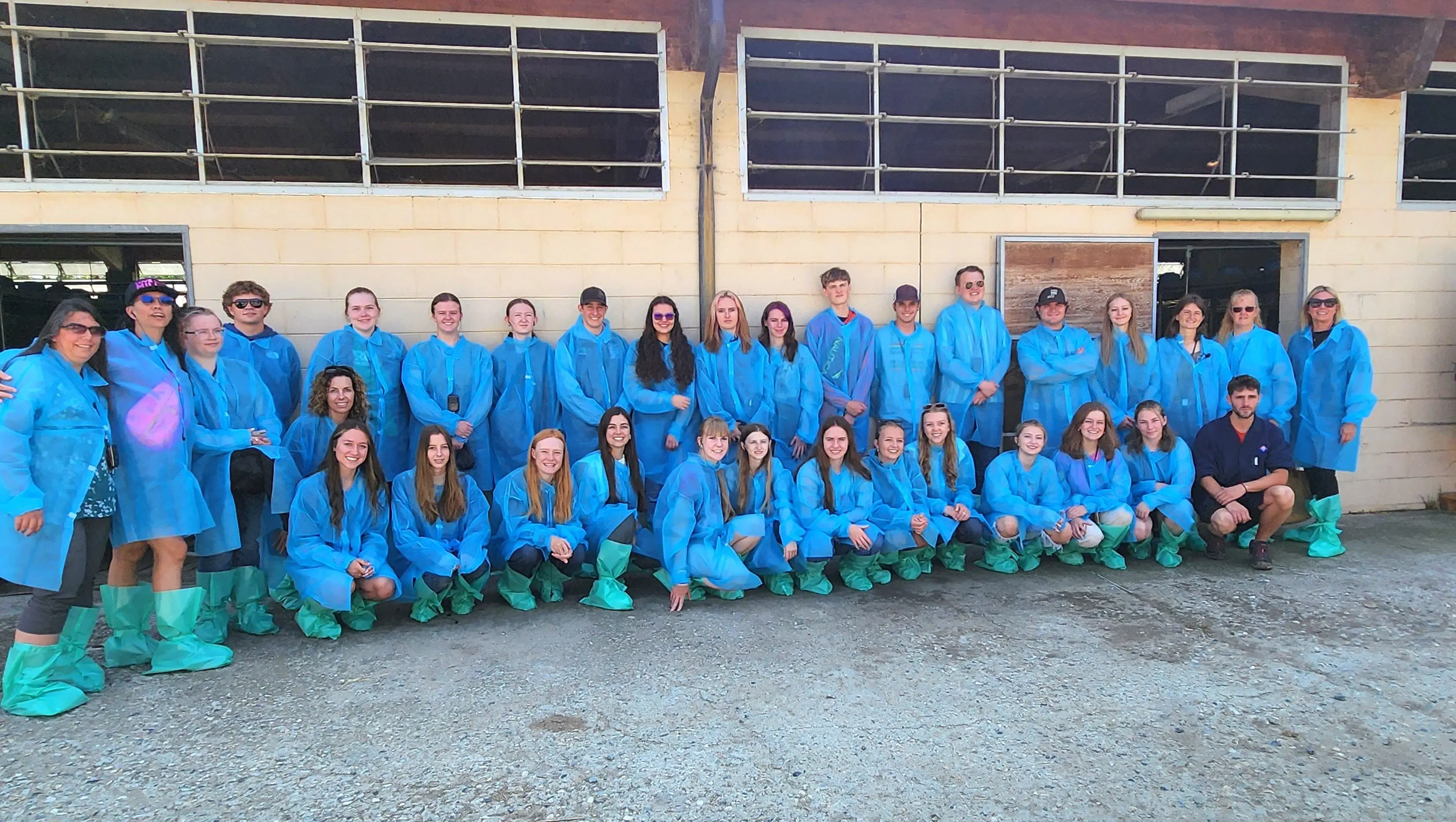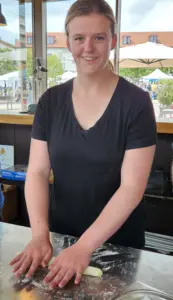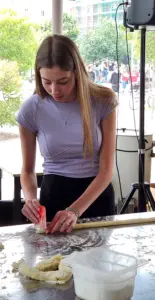
By Shannon Lukens. Courtesy photos.
4-H members from throughout Colorado recently took a trip to Italy to learn about agriculture, culture, and connections abroad. Of the 34 on the trip, four were from Routt County 4-H. They are: Timothy Bedell, Jessica Bedell, Maeve Benedetti and Mia Cranwell. The tour traveled from Turin to Nice. They visited a flour mill, grape farm, veal farm, olive orchard, fruit processing plant, and learned about making cheese at a dairy farm. More details are below.


Press Release from CSU Extension office of Routt County; June 2025.
Colorado 4-H Members Explore Sustainable Agriculture on Cultural Tour of Italy and France
June 2–10, 2025 | From Turin to Nice: Youth Discover Agriculture, Culture, and Connection Abroad
From June 2 to June 10, 2025, a group of 34, 4-H youth and adult participants from across Colorado embarked on a once-in-a-lifetime journey through northern Italy and southern France to explore sustainable agriculture, immerse themselves in new cultures, and strengthen the values of 4-H. Timothy Bedell, Jessica Bedell, Maeve Benedetti and Mia Cranwell, 4-H members from Routt County 4-H embarked on the educational experience.
The tour began in Turin, Italy, and concluded in the scenic coastal city of Nice, France. Over the course of nine days, participants traveled through the picturesque countryside, taking part in hands-on learning experiences that brought European agriculture to life. Stops along the route included a traditional flour mill, grape farm, veal farm, olive orchard, fruit processing plant, a dairy farm with on-site cheese making, and even a fruit experiment station. Tim shared, “ It was cool to tour the olive farm that had 15,000 trees.” Participants also enjoyed a gnocchi cooking class, and Cranwell shared that she really enjoyed getting to learn the process of making their food.
The group witnessed firsthand the diversity of agricultural production in Europe — from vast fields of corn and wheat to grape vineyards and livestock grazing pastures. At each stop, youth engaged with local experts to better understand how sustainable practices are shaping agriculture across the globe. Maeve, learned how to use water to make energy along with how the traditional grain machinery worked at the flour mill.
Jessica shared, “I learned the flour makers produce over 24,000 products, there are specific bacteria used in the cheese making that comes from the caves nearby, apples are harder to produce than kiwis, they paint olive trees white to attract flies and then use chemical that controls them, and it takes 7-10 years of schooling to become a perfume maker as their nose has to memorize 3,000 scents.” One of the chaperones said, “It’s one thing to learn about farming techniques in a classroom, but another entirely to experience it while standing in a vineyard in Italy or watching cheese being made at a family farm-to-plate dairy operation.”
Cultural appreciation was a core part of the journey. Participants explored centuries-old architecture, sampled regional cuisine, and learned about the rich history of each destination. Through these immersive experiences, youth deepened their understanding of global perspectives and built lifelong memories.
Perhaps one of the most impactful outcomes of the trip was the sense of connection formed among the youth. In addition to learning from international agricultural professionals, the Colorado 4-H members had the opportunity to bond with 4-Hers from other states, fostering friendships that transcended state lines and backgrounds. As Eve Clark shared, “I have met many cool people and made new friends.”
“This trip truly embodied the 4-H value of belonging,” said a chaperone. “Our youth grew as global citizens. They came home with more than just souvenirs — they brought back new perspectives, appreciation for cultural differences, and the confidence that they are part of a global community.”
As the 4-H Sustainable Agriculture Cultural Trip wrapped up in Nice, France, the group left inspired by what they had seen, learned, and shared. The journey not only broadened their agricultural knowledge, but also changed lives — sparking a deeper commitment to sustainability, cultural understanding, and the 4-H pledge to make the best better.